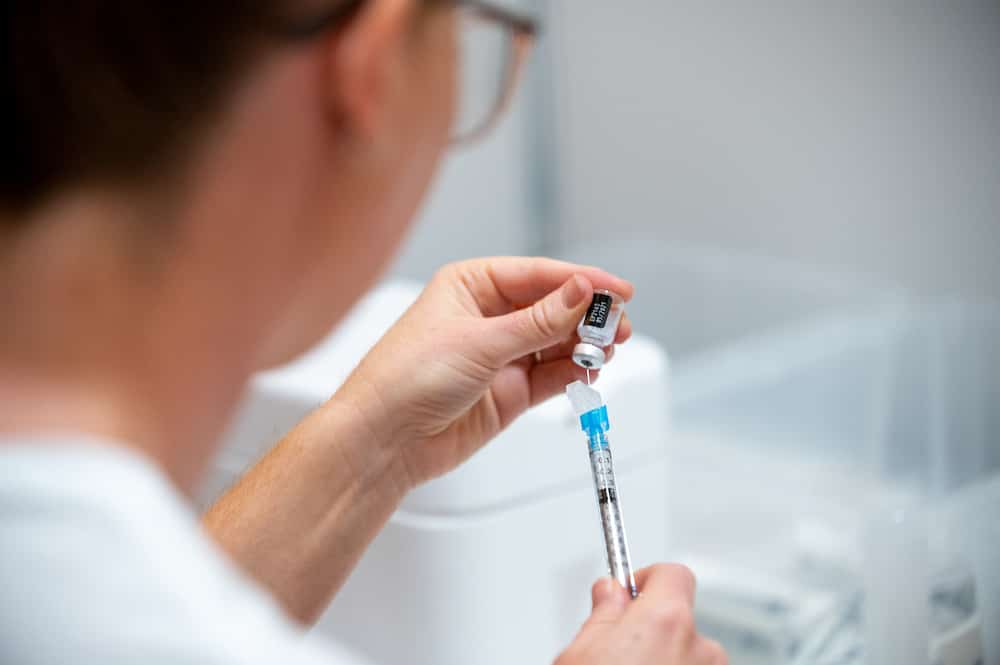Australia has been urged to balance protecting frontline workers and the elderly with COVID-19 booster shots and help lift jab rates in poorer nations.
Australian Medical Association vice-president Chris Moy thinks it makes sense to prioritise domestic booster shots for frontline workers and the elderly.
But he says Australia has a responsibility to provide vaccines to countries where the majority of people haven’t had their first two shots.
“This is a worldwide pandemic,” Dr Moy told ABC TV.
“We do need to pull our weight in making sure the rest of the world is vaccinated and gets access to vaccine as soon as possible and not to lose sight of that.”
He separately warned lower federal payments for GP clinics delivering booster shots could put the domestic rollout at risk.
“It does risk the booster program,” Dr Moy told AAP.
“There is certainly a lot of concern among colleagues.”
Under the scheme, GPs receive about $30 to deliver an initial vaccine dose and another $24 for the second.
Clinics receive about $10 on top of that when a patient get both doses at the same place.
But participating GPs only receive the lower payment of $24 per booster shot.
“With the effective drop in the funding model, there are certainly a lot of GPs questioning if they’re able to continue doing it the way they’re doing it,” Dr Moy said.
More than 250,000 booster shots have been put into arms since the program was approved by the medical regulator.
A third dose of the Pfizer vaccine is recommended for people who became fully vaccinated more than six months ago.
Aged and disability care residents have been prioritised for the booster shot.
Health experts stressed the need for Australians to get their booster shot when they’re eligible ahead of an expected spike in cases next winter.
“We need to make sure as many people as possible are encouraged to have the booster vaccine and make sure the health system is prepared as possible,” Dr Moy said.
More than 83 per cent of the country aged 16 and older is double-dosed.
With jab rates climbing, attention is turning to when children aged between five and 11 can get vaccinated.
The country’s medical regulator is reviewing data from Pfizer about whether to approve the vaccine for children.
Vaccine rollout head Lieutenant-General John Frewen indicates children could be be waiting until January.
“It would be a great opening to get approval to the vaccine while students are on holidays in January and so they aren’t congregated in schools,” Dr Moy said.
“It’s about getting as prepared as possible and trying to protect students from outbreaks in schools.”
NSW on Monday reported 165 new cases and one death, while Victoria recorded 860 infections and five fatalities.
The ACT had 10 new COVID-19 infections.
AAP
Get all the latest Canberra news, sport, entertainment, lifestyle, competitions and more delivered straight to your inbox with the Canberra Daily Daily Newsletter. Sign up here.



